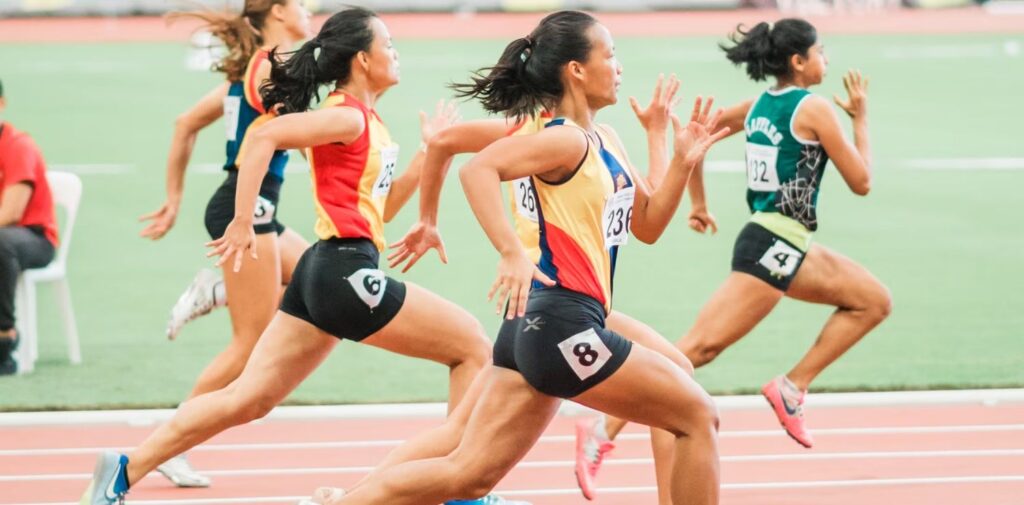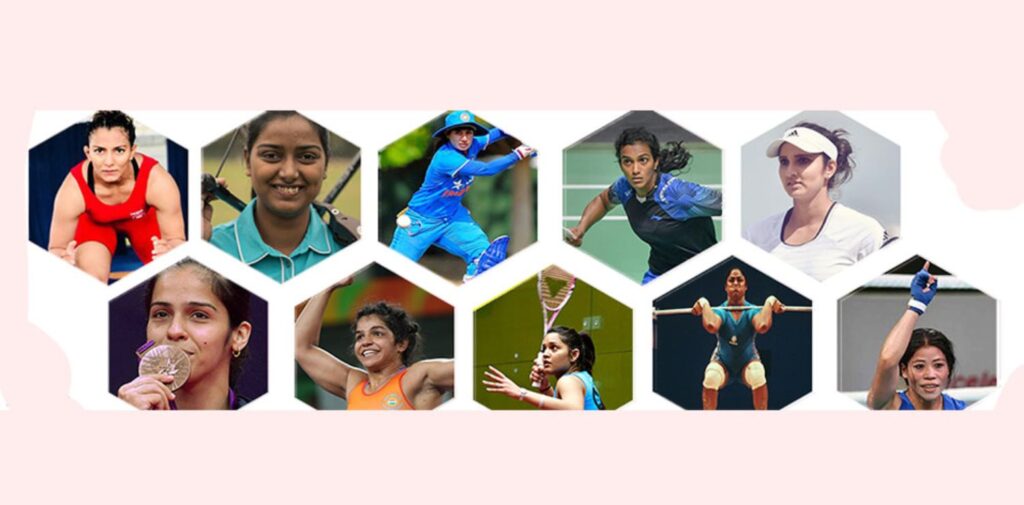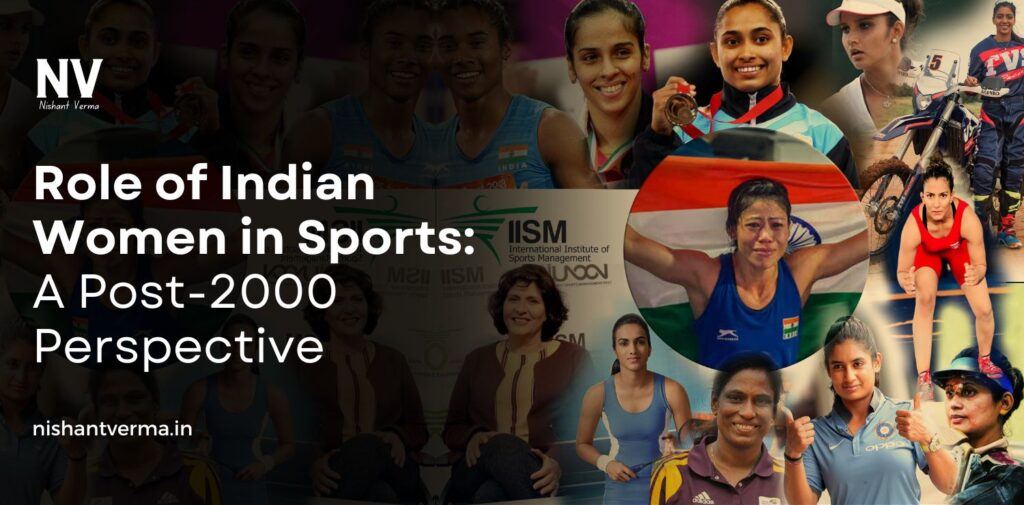The role of women in Indian sports has evolved significantly since the turn of the 21st century. Over the past two decades, Indian women athletes have broken barriers, shattered stereotypes, and made remarkable achievements in a variety of sports. Historically, Indian women faced significant challenges in sports due to societal norms, lack of opportunities, and insufficient support. However, the post-2000 era has seen a dramatic shift, with women emerging as role models, leaders, and champions in Indian sports. This transformation reflects not only the changing perception of women in sports but also the growth of women’s empowerment in the country.
Changing Mindset and Growing Support
One of the major factors behind the rise of Indian women in sports post-2000 is the shift in mindset. Traditionally, Indian society placed women in roles centered around the home and family, with sports not being considered a viable career path. However, in recent years, there has been a noticeable change in attitudes toward women’s participation in sports. The growing recognition that sports can provide women with a platform to showcase their talent, achieve personal growth, and even secure financial independence has played a crucial role in encouraging young girls to pursue sports.
Furthermore, governmental and non-governmental organizations, as well as sports bodies, have started to recognize the importance of promoting women in sports. Initiatives like the Khelo India Programme, which aims to develop young talent across various disciplines, have provided better infrastructure and opportunities for female athletes. Additionally, the government’s efforts to provide scholarships and financial support for female athletes have been instrumental in helping them reach their full potential.

Women Breaking Barriers in Traditional and Non-Traditional Sports
The 21st century has witnessed women breaking barriers not only in traditional Indian sports like kabaddi, wrestling, and athletics, but also in non-traditional sports such as badminton, boxing, cricket, and football. These women have challenged social norms and defied expectations, proving that sports are not limited to any gender.
In badminton, Saina Nehwal and P.V. Sindhu have become household names, achieving global recognition. Saina Nehwal made history as the first Indian female athlete to win an Olympic bronze medal in badminton at the 2012 London Olympics. Following in her footsteps, P.V. Sindhu won the silver medal at the 2016 Rio Olympics and has since continued to bring home numerous international medals, including the prestigious World Badminton Championship titles. These athletes have inspired millions of young girls to take up badminton and aim for global success.
In boxing, Mary Kom, a six-time world champion, has made significant strides in a sport that was once predominantly male-dominated. She became a symbol of perseverance, strength, and success, winning the Olympic bronze medal in 2012 and later achieving incredible feats in her career. Her achievements have shown that with determination and hard work, women can excel in any sport, including one as physically demanding as boxing.
Moreover, Indian women have also made their mark in wrestling. Wrestlers like Vinesh Phogat and Sakshi Malik have brought attention to women’s wrestling in India. Sakshi Malik’s bronze medal at the 2016 Rio Olympics made her the first Indian female wrestler to win an Olympic medal, sparking national pride. Vinesh Phogat, with her achievements on the world stage, has become a role model for aspiring wrestlers, especially women, in rural India.
Women in cricket have also seen a significant rise in visibility. Players like Mithali Raj, Jhulan Goswami, and Harmanpreet Kaur have turned Indian women’s cricket into a powerful force to be reckoned with. Mithali Raj, who has held the captaincy of the Indian women’s cricket team for many years, became one of the world’s highest run-scorers in women’s cricket. Harmanpreet Kaur, known for her aggressive batting style, has represented India in several international tournaments, including the ICC Women’s World Cup and ICC Women’s T20 World Cup.

Challenges Faced by Women Athletes
While Indian women in sports have achieved significant success, their journey has not been without its challenges. Despite the growing recognition of female athletes, Indian women in sports still face several hurdles, including gender bias, lack of proper infrastructure, funding issues, and social barriers.
For many women, especially in rural areas, pursuing sports often requires defying societal expectations. Girls are sometimes discouraged from participating in sports due to the belief that it is inappropriate for women or that it would interfere with their future roles as wives and mothers. This cultural stigma has meant that many talented women have not had the same opportunities or encouragement as their male counterparts.
Another significant challenge is the lack of proper infrastructure and facilities for women in sports. While there has been progress in recent years, many Indian states still lack proper sports facilities, coaching, and training for female athletes. This disparity in access to resources and opportunities can limit the potential of aspiring women athletes.
In addition, the financial constraints and sponsorship opportunities for women athletes have traditionally been limited. While male athletes often receive lucrative sponsorship deals and media coverage, female athletes have historically been left out of these opportunities. This disparity in financial support has made it difficult for many women to sustain long-term careers in sports.
The Rise of Role Models and Their Impact
The success stories of women athletes like Saina Nehwal, Mary Kom, Mithali Raj, and P.V. Sindhu have had a profound impact on the younger generation of girls in India. These role models have shattered the notion that sports are only for men, inspiring girls across the country to dream big and pursue their passion for sports.
Their stories of hard work, resilience, and dedication have not only encouraged more young girls to take up sports but also have had a wider societal impact. Today, more families are willing to support their daughters in pursuing sports, knowing that they can achieve national and international recognition. These role models have also opened doors for greater media coverage of women’s sports, helping break down the stereotypes surrounding female athletes.
As a result, there is a growing culture of women’s empowerment in Indian sports. The increasing presence of female athletes in major international competitions and their success has also led to a shift in how women are perceived in Indian society. No longer confined to traditional gender roles, Indian women are increasingly seen as powerful, talented, and capable individuals who can excel in any field, including sports.

The Road Ahead: Future of Women in Indian Sports
The future of Indian women in sports looks promising. With ongoing efforts to improve infrastructure, provide better training, and encourage young girls to participate in sports, there is significant potential for India to produce more world-class female athletes in the years to come. The continued growth of women’s sports leagues, like the Indian Women’s League in football and the Women’s IPL in cricket, will provide more platforms for women to showcase their talent and get the recognition they deserve.
Moreover, the increasing number of female athletes participating in the Olympics, Commonwealth Games, and other international events has created a positive atmosphere for the younger generation to follow in their footsteps. The involvement of women in sports leadership roles, such as coaches, managers, and administrators, will further empower women and help create a more inclusive sports culture.
Conclusion: Indian Women in Sports
The role of women in Indian sports has undergone a revolutionary transformation since the year 2000. With tireless determination and unwavering commitment, Indian women have proven themselves in various sports, breaking records and pushing boundaries. From cricket to badminton, wrestling, boxing, and athletics, Indian women have emerged as global champions, and their influence continues to grow. As societal attitudes change, infrastructure improves, and government support increases, the future of women’s sports in India looks bright. The rise of women athletes has not only made sports more inclusive but has also played a pivotal role in empowering women across the country.




